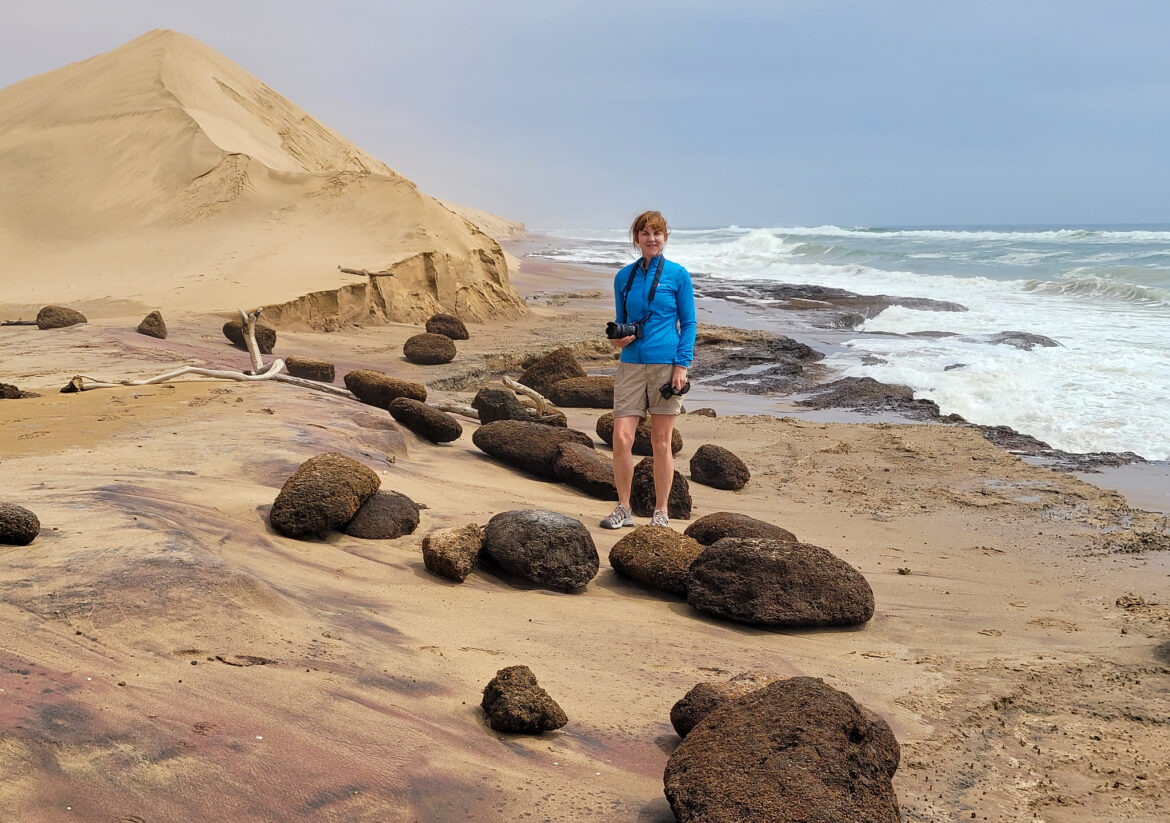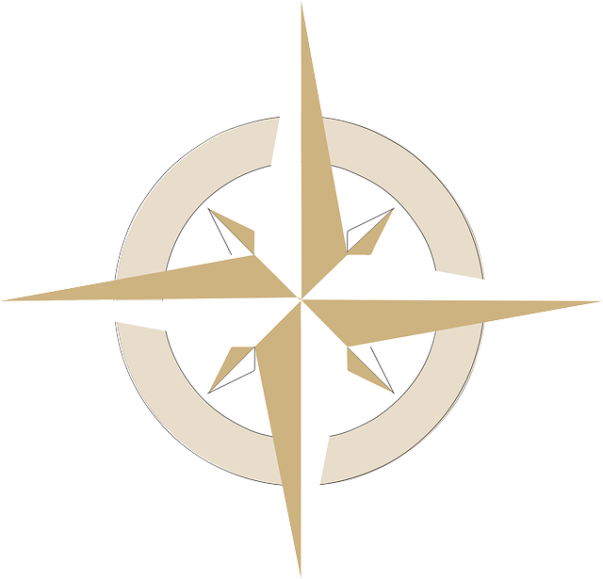While Namibia may be one of the youngest countries in the world, the Namib desert is the oldest. This country of contrasts is one of the most unique places on our planet with deserts, wetlands and pink lakes with incredible birding and wildlife. I just experienced one day on my Walvis Bay Namibia Tour. But it was life-changing, and I cannot wait to return to this country. So, read on to learn more about the one and only Namibia.
About Walvis Bay and Namib Desert
The town Walvis Bay means Bay of Whales in Afrikaans. Founded by the Dutch in 1793, it later became occupied by the British, the Germans and South Africans. After the apartheid regime, South Africa turned over Walvis Bay to Namibia. Walvis Bay’s population is 55,000 – 65,000 with Namibia’s only deep- sea harbor. Along the coast, the cold Benguela current collides with the warm air, bringing dense ocean fog. This fog creates treacherous sailing conditions and gives rise to the name “Skeleton Coast” from all the shipwreck ruins on the shore. The temperatures along the coast remain much milder, while inland summer daytime temperature can exceed 45 degrees C (113 deg. F).
The Namib is a coastal desert in southwest Africa stretching from southern Angola along the Namibia coast and into northern South Africa. This unique desert is known for its high sand dunes that meet the Atlantic Ocean. The Namib desert has existed for 55-80 million years, making it the oldest desert in the world. The sand dunes rise up to 300 m with some spreading up to 32 km long. Overall, the Namib sand dunes are the second highest in the world, after the Badain Jaran Desert in China.
Check out my YouTube Video!
My Walvis Bay Namibia Tour
Dune 7, Pink Lake, Flamingos
& Sandwich Harbor
In one day at Walvis Bay area, I experienced what felt like a lifetime of discoveries. As an Acupuncturist on a cruise ship, I excitedly disembarked for an adventurous day in Namibia. Outside the ship terminal, I joined a group of passengers haggling with Rassie Tours for a full day excursion. I joined them on a tour going to Dune 7, Pink Lake, Flamingo Colony and Sandwich Harbor for a 4 WD adventure.
Dune 7 – Highest Sand Dune in Namibia
Our first stop was at Dune 7, the highest sand dune in Namibia standing at 383 m (1,256 ft). Its name comes from being the seventh dune after crossing the Tsauchab River. Here, I climbed to the top of this massive sand dune. Making it to the top of Dune 7, I suggest climbing the diagonal path from off to the side to the ridge line. Once on the ridge line, it’s fun and easy to move around and enjoy epic 360-degree views of the Namibia Desert. Besides climbing the dune, it’s also popular to enjoy the sand on quad bikes or sandboarding with companies, such as, Dune 7 Adventures.
Pink Lake
The unique Pink Lake is a salt lake in Walvis Bay that appears pink. This color is caused by the high concentration of salt in the water resulting from high temperatures and low humidity. Furthermore, this leads to the growth of microscopic algae releasing a reddish-pink pigment called beta carotene. A sight to behold for sure when you are in Walvis Bay.
Walvis Bay Flamingo Colony
Where there’s pink salt flats, there’s usually flamingos. The Walvis Bay Flamingo Colony is not to be missed. I observed within 3 m, dozens of flamingos on the Walvis Bay Wetlands. This is my best experience ever, seeing so many flamingoes in the wild. It is stunning to see and hear all their bird sounds.
The flamingos breed at other locations in Africa but feed in Walvis Bay Wetlands. Both species of African Flamingos feed here, the Greater and Lesser Flamingos. The Greater flamingos are the largest flamingo species. Lesser flamingos are smaller and brighter than the greater ones. These birds are pink because they feed on the algae (releasing beta carotene) and shrimp that eat the algae, turning their feathers pink. Other flamingo species in the world include the Caribbean, Chilean, Andean and Puna.
For more information on the Caribbean flamingoes and pink salt flats, check out my article:
Beautiful Bonaire South Tour on a Golf Cart an 10 Places of Interest and Snorkeling
Flamingo Fun Fact: A group of flamingos is called a flamboyance.
Sandwich Harbor 4 WD Adventure
Sandwich Harbor is about 60 km south of Walvis Bay. The harbor includes a bay in the north and lagoon on the southern end, as part of the Namib-Naukluft Park. Here, some of the world’s largest sand dunes meet the Atlantic Ocean. Also, this is important coastal wetlands and home to a wide diversity of wading birds. Sandwich Harbor is 1 of 5 Ramsar sites in Namibia.
Lastly, going to Sandwich Harbor, we switched over from a van to a 4 WD vehicle to safely maneuver the shifting sands. We drove for about 45 minutes to Walvis Bay. This is only accessible by 4 WD along the sandy shores or boat. The rugged coastline is stunning and we saw dozens of seals. Finally, we reached a stretch of massive sand dunes that meet the sea. Getting out, once again I climbed on sand dunes. However, it was different than Dune 7 gazing at the Atlantic Ocean. Truly, this is one of the most unique experiences in my life.
The Raft Restaurant
After our tour, I wandered the Walvis Bay lagoon near our cruise port. I saw many pelicans and stopped at The Raft Restaurant for dinner. This unique restaurant stands on stilts in the Walvis Bay lagoon with a mouth-watering seafood menu. I loved my grilled filet of Hake with lemon butter along with the incredible views of the sunset.
Enjoy Walvis Bay!
Truly, this is one of my favorite travel adventures ever. Walvis Bay, Namibia is one of the most unique places of contrasts that I have experienced. And I only scratched the surface. If you have any suggestions or tips on how best to enjoy Walvis Bay, please leave comments below.
Read Next!
Cape Town, South Africa 2-Day Itinerary – Table Mountain, Penguins & Cape Point
Fascinating Ecotourism at Makasutu Culture Forest in The Gambia, Africa









